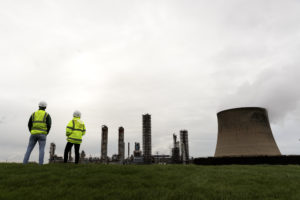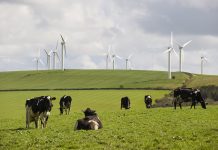 Bids from three industrial consortia that will link together to deliver deep reductions in industrial emissions on the east coast of England have been awarded funding as part of the Industrial Decarbonisation Challenge under the UK Research and Innovation’s Industrial Strategy Challenge Fund (ISCF). The three bids amount to £229 million in private and public funding, with industry contributing two-thirds of the total, and will support the next stage in development of the three projects.
Bids from three industrial consortia that will link together to deliver deep reductions in industrial emissions on the east coast of England have been awarded funding as part of the Industrial Decarbonisation Challenge under the UK Research and Innovation’s Industrial Strategy Challenge Fund (ISCF). The three bids amount to £229 million in private and public funding, with industry contributing two-thirds of the total, and will support the next stage in development of the three projects.
The Northern Endurance Partnership (NEP) will accelerate the development of an offshore pipeline network and geological storage in the UK Southern North Sea. Captured carbon dioxide (CO2) emissions from both the Net Zero Teesside (NZT) and Zero Carbon Humber (ZCH) projects will be transported and permanently stored deep underground in Endurance, the UK’s largest appraised saline aquifer for carbon storage.
In Teesside, Net Zero Teesside (NZT) will develop a new flexible gas-fired power station with carbon capture and establish a CO2 gathering network to enable decarbonisation of industrial emitters, hydrogen production and power generation in the Teesside area.
In the Humber, the Zero Carbon Humber (ZCH) partnership will develop H2H Saltend, one of the world’s first at-scale low carbon hydrogen production plants, and a CO2 and hydrogen pipeline network connecting to industrial sites and gas and biomass power stations throughout the Humber, enabling them to capture their CO2 emissions and/or to switch to low carbon hydrogen.
NZT and ZCH are at-scale projects that will kick-start decarbonisation of industry and power in two of the UK’s largest industrial clusters. Both projects aim to be commissioned by 2026 with realistic pathways to achieve net zero through a combination of carbon capture and hydrogen. If successful, the combined projects will support decarbonisation of nearly 50% of the UK’s industrial cluster emissions.

Business and Energy Secretary Kwasi Kwarteng said, “We were the first major economy to put into law our target to end our contribution to climate change, and today we’re taking steps to be the first major economy to have its own low-carbon industrial sector.
“While reaching our climate targets will require extensive change across our economy, we must do so in a way that protects jobs, creates new industries and attracts inward investment – without pushing emissions and business abroad.
“Ahead of COP26, the UK is showing the world how we can cut emissions, create jobs and unleash private investment and economic growth. Today’s strategy builds on this winning formula as we transition low carbon and renewable energy sources, while supporting the competitiveness of Britain’s industrial base.
The Industrial Decarbonisation Challenge, funded as part of the ISCF, is the Government’s flagship challenge-led innovation programme, run through UK Research and Innovation (UKRI), a non-departmental public body sponsored by the Department for Business, Energy and Industrial Strategy (BEIS). Around £2.6bn of public money has already been invested through the programme in projects from all sectors to tackle big societal and industrial challenges of today.



